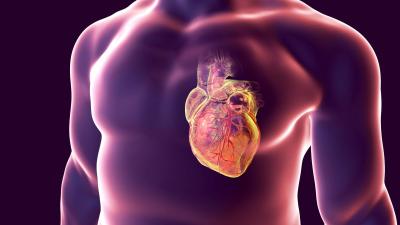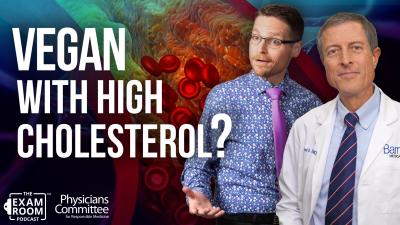5 Top Sources of Heartbreaking Saturated Fat

Cut the saturated fat from your diet to keep your heart healthy.
That was one of the key recommendations the Dietary Guidelines Advisory Committee had last week for the 2020-2025 Dietary Guidelines for Americans. But the Dietary Guidelines need to clearly indicate that the best way to do that is to stop eating meat and dairy products, which are the leading sources of saturated fat in the American diet.
According to data from the federal government’s National Health and Nutrition Examination Survey (NHANES), the top sources of saturated fat in the American diet are:
- Cheese
- Beef
- Other fats and oils
- Milk
- Frankfurters, sausages, luncheon meats
Research from the Nurses’ Health Study and the Health Professionals Follow-up Study found that those who consumed more saturated and trans fats increased their risk of early death from heart disease, cancer, and cognitive diseases when compared to those who consumed more unsaturated fats.
Replacing saturated fats with healthful carbohydrate-rich foods and unsaturated fats, as the Dietary Guidelines Advisory Committee has suggested, is best for reducing the risk of heart disease. In a study published in the Journal of the American College of Cardiology, participants who replaced 5% of calories from saturated fat with equal calories from polyunsaturated fats, monounsaturated fats, or whole-grain carbohydrates reduced their risk for developing heart disease by 25%, 15%, and 9%, respectively.
Research shows that those who follow a vegan diet are less likely to have cardiometabolic risk factors, compared with those who consume omnivorous diets. Researchers analyzed 40 studies from more than a dozen countries to compare outcomes for people consuming vegan diets with those consuming omnivorous diets and found that people following vegan diets consumed fewer calories and less saturated fat and had lower body mass, LDL cholesterol, triglycerides, blood pressure, and fasting blood glucose, compared with controls.
The Dietary Guidelines need to clearly warn against consuming meat and dairy products and recommend a plant-based diet to best protect Americans’ hearts from saturated fat.








